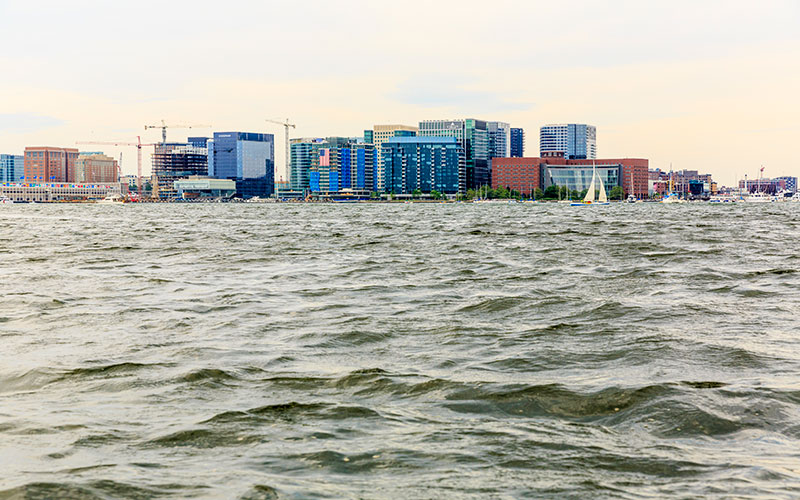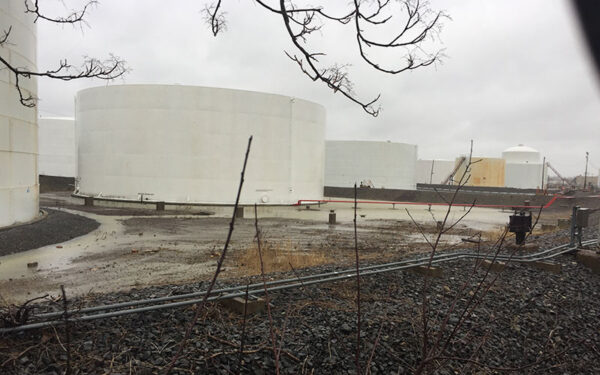
Mayor Walsh's recently announced plan to make South Boston climate resilient is a good first step, but it won't be enough if private partners don't step up to help pay for it. Photo: EcoPhotography
Boston has no time left to waste in addressing the threat of climate change. Last winter, we experienced massive flooding in the Seaport not once but twice, and we know that more dangerous storms and rising tides are in our future.
That’s why Conservation Law Foundation is applauding a plan by Mayor Marty Walsh to make Boston’s shoreline – and the entire city – more resilient to climate impacts. Mayor Walsh recently announced “Resilient Boston Harbor,” which he says will also create more open space and promote public access along the city’s 47-mile coast. He also promised to designate 10 percent of Boston’s capital budget to this endeavor, which is estimated to cost about $16 million in resources.
For all the good that is in this plan, however, it is still just that: a plan. The fact is that planning for open space and climate resilience is critical, but planning without concrete action isn’t enough. Boston’s leadership in developing climate strategies must move from plans to implementation so that the City can protect its neighborhoods, our economy, and future generations from rising seas and extreme weather.
Private Developers Need to Reinvest Profits in a Resilient City
It’s important for the City to provide leadership in readying our neighborhoods for the climate impacts to come. But it is even more urgent for the private sector to step up as an equal partner in protecting Boston. The City and taxpayers alone cannot be on the hook for the costs of adapting to climate change.
The $16 million that the city has pledged should act as a catalyst for others to invest their resources – especially the private developers who have profited so greatly from the region’s growing economy and a cleaned up Boston Harbor that is today a world-class public asset.
This is an opportunity for developers and property owners to be part of a collective effort to build a climate-resilient city – an effort that no single actor can achieve alone. As Mayor Walsh said in a speech before the Greater Boston Chamber of Commerce, successfully creating a resilient Boston Harbor “will require collaboration and funding between federal, state, private, philanthropic, and nonprofit partners.”
Time for Action is Now
Extreme weather is here now – and it’s only going to become more extreme and erratic in the years to come. We can’t afford to let this plan for a resilient city sit on a shelf while waiting for investors to step up. We need to hold the private sector accountable to the vision that Mayor Walsh is advancing. CLF looks forward to working with the mayor, businesses, developers, and the public to turn Boston’s plan for a resilient city into reality.



